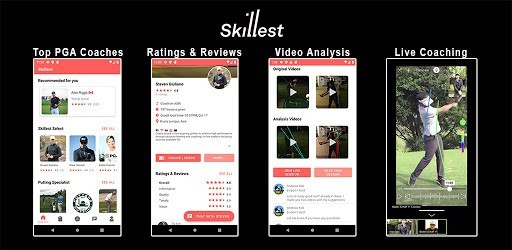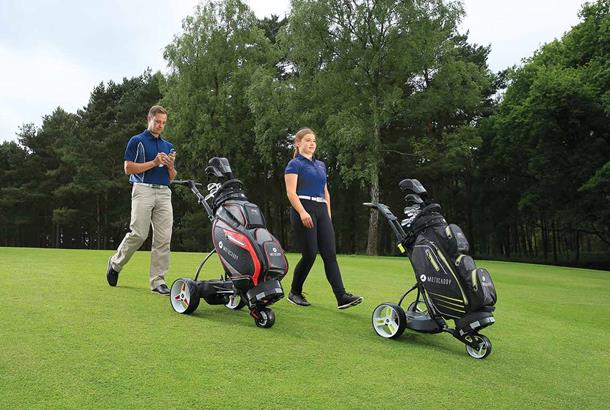3 Reasons Why Your Back Hurts After Golf + How to Fix It
Unfortunately, back pain is highly prevalent in golfers. In fact, it’s the most common injury in our sport. Many of the players that come to me looking for help, are experiencing back pain either during or after playing golf. But why does my back hurt after golf? The severity ranges from mild discomfort, to debilitating pain but for all of these golfers it is affecting their ability to play at their full potential.
Why is golf causing me back pain?
Here are 3 of the main reasons I see in the amateur golfers that I work with.
- Lack of Mobility
Our modern lifestyles have us stuck behind desks, sat on chairs and slouched over our phones. This could be a reason why As a result, our hips, backs, necks and shoulders are losing a lot of their ability to move. The golf swing requires a lot of movement, at high speeds.
When you try to put a body with restricted movement through the swing it will find a way around its limitations. Taking away the possible technical issues that might occur in the swing, this will also lead to areas of the body that are typically used to stabilize, being used instead for movement.
The lower back, for example, is mostly designed as a stable part of the body. Yet with limited movement above (torso) and below (hips) this area has no choice but to help you with rotation in the golf swing. Do this once or twice, no big deal, repeat it over 90 times in a round and it may start to tell you that it’s not happy.
How to fix it: Improving the mobility of your torso and hip rotation will relieve a lot of the pressure being put on your lower back. Some exercises to stabilize the area may also be of benefit.
Fun Golf Tip – To access Joe’s FREE mobility course, click on the below link:

- Swing Mechanics
The way we swing the golf club will reflect where load is put on to the body. Swings that have little lower body movement and don’t use the ground well will typically have more demand placed on the upper half and the lower back may take the brunt of this.
This could link back to mobility as mentioned above. For example, with limited hip rotation available, a player might be more inclined to sway away off the ball to build momentum. Or with limited rotation in the torso, you might see a swing lead more with the arms.
This isn’t just based on swing ‘faults’ though. I have been involved with very good players, who have had to rebuild their swings due to debilitating back pain. Excessive side bend or exaggerated separation between the upper and lower body will also put extreme loads on the lower back.
How to fix it: Working on your mobility and strength will definitely make you more resilient to whatever swing you are swinging. However, having a lesson with a coach who understands the importance of longevity in the game could be a great option if you believe you are struggling with any of the points mentioned above.

- Too Much Speed, Not Enough Strength
With speed sticks and hitting the ball further becoming more and more popular, I am seeing more back injuries in younger players. When adding speed, it’s important that our bodies have the foundation to back it up. Many fast result techniques, like speed sticks, make us vulnerable to a speed / strength imbalance.
I have seen injuries in the lower back from this but also many in the mid back area too. We can see how adding speed to a body that is immobile (cause #1) and has poor swing mechanics (cause #2) is probably not a great idea. But golfers who are immobile with inefficient swing mechanics are probably the ones who are not hitting the ball very far, and therefore the most tempted into speed training.
How to fix it: Firstly, if you want to add speed, then working on the foundations of your body is the first step. Get stronger, more mobile and more resilient. Then add speed training on top of this. The second part is to realise that more speed doesn’t mean more distance.
Spend time working on your quality of strike and control of spin which will get you more distance. Once these numbers are optimized, then you can look at adding more speed.
Fun Golf Tip – To access Joe’s FREE Speed Training Course click on the below link:
I hope you’ve enjoyed this expert opinion on how much water to drink while playing golf For free advice and guidance on your golf fitness, why not join Team Macro Golf for free at TeamMacroGolf or follow Joe on Instagram @Joe_MacroGolf
If you’re looking to improve your golf why not check out some of our equipment reviews on the best rangefinders or the best golf balls?




